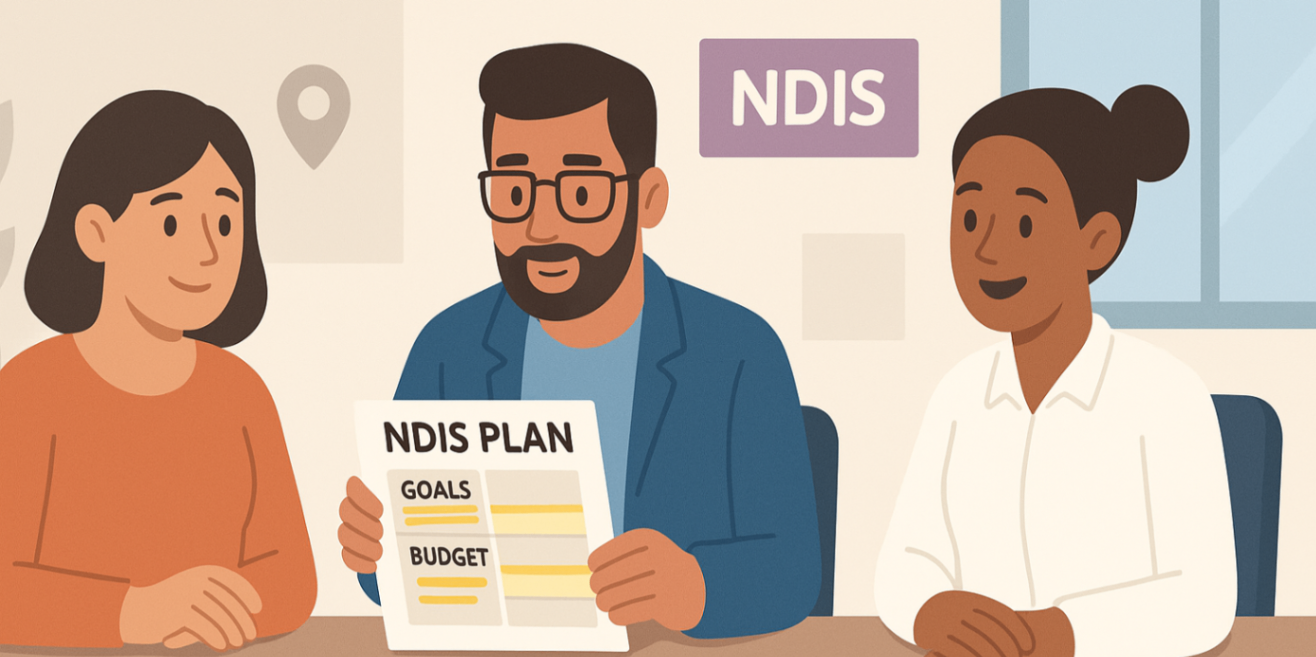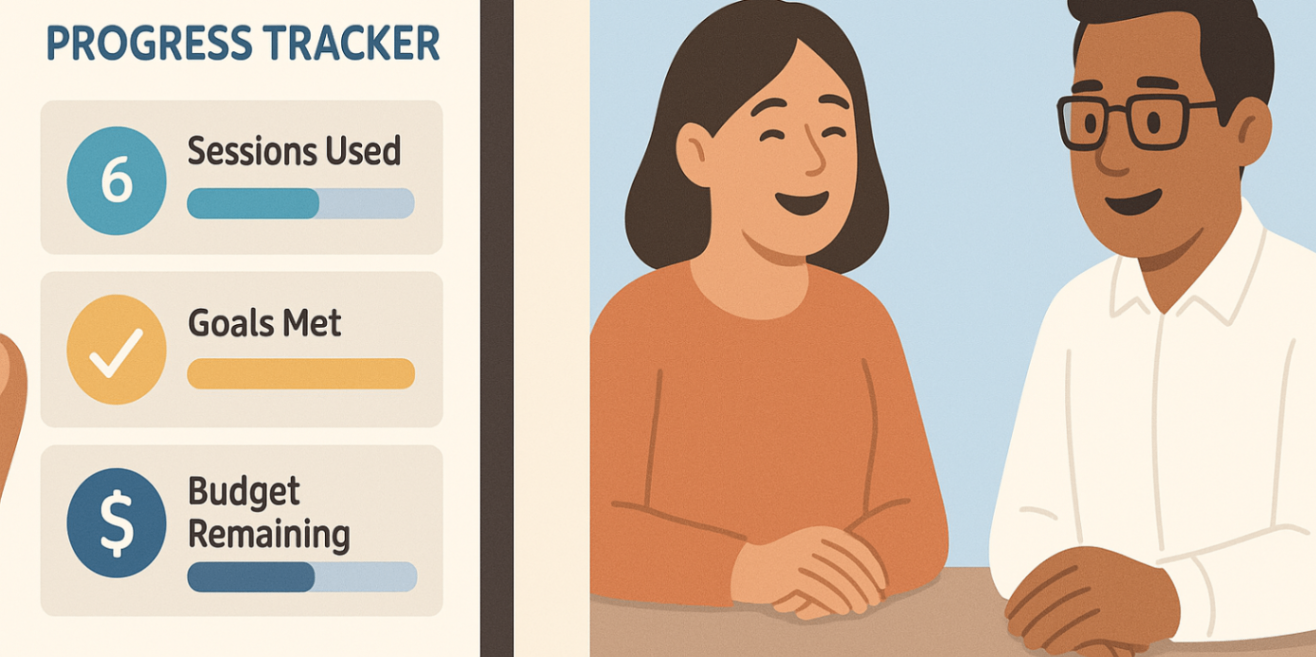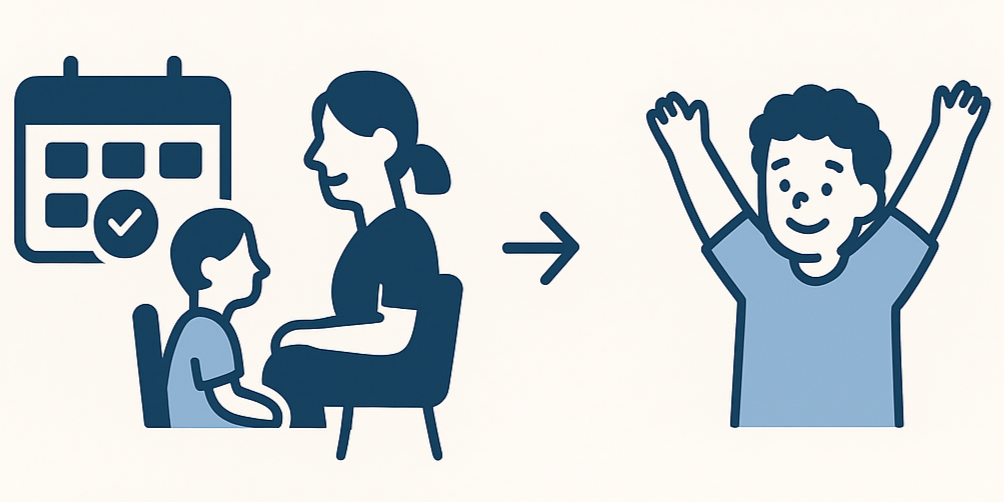
how ndis plan management supports therapy goal achievement
18 August, 2025
Introduction
Working with your ndis plan can feel hard, especially when the plan has goals, and you need to keep track of your money. Plan management helps by giving you help from a plan manager who takes care of all the hard work. A plan manager makes things easier. They help you use your ndis funding in the best way. They also make sure the money goes to the things you want to do in your plan.
When you have a plan manager helping you, you can focus more on getting better in your therapy. You also get to pick and use the services you want. This makes you feel more free and in control. This article talks about ways that plan management, and having a plan manager, can help you and your family to meet therapy goals with your ndis plan and ndis funding.
Key Highlights
-
Plan management helps people in the NDIS get more from their ndis plan. It lets people use a wider range of service providers, even if some the providers are not registered.
-
A plan manager with experience will take care of all payments, invoices, and tracking of money. This means families have less paper work to do.
-
Families can see their ndis funds anytime. This helps them know their budget and feel sure about choices they make. Plan managers work well with support coordinators and therapists so participants can reach their therapy goals.
-
To add plan management to your ndis plan, you should ask your NDIS planner or local area coordinator in your planning meeting. You need to tell them that you want your ndis funds to be managed by a plan manager, so you can use their skills and keep a close eye on your budget.
-
Plan managers work closely with support coordinators and therapists. This is to help participants get to their therapy goals.
-
Picking plan management does not add extra charge. It is funded along with every ndis plan.
-
A good plan management provider offers smooth invoice processing and keeps data safe and secure.
Understanding NDIS Plan Management in Australia

For many families, knowing how ndis plan funds work can help them get better therapy results. One way to handle ndis funding is plan management. There are three ways in total, and each way has its own good points. When families choose plan management, they get expert help with their ndis funds. This support makes it simple to pay service providers and keep track of spending. A ndis plan manager does more than just sort out payments. This person helps each participant use their ndis funding in smart ways and makes sure each service fits well with their own goals.
If you’re planning supports for the year ahead, this guide shows five smart strategies to stretch plan funds and focus on meaningful outcomes — see Maximising Your NDIS Plan — 5 Smart Strategies.
What is NDIS Plan Management and how does it work for participants?
NDIS plan management is a way to help with money tasks in your ndis plan. It lets a plan manager look after your ndis funds. You do not have to do the paperwork or pay bills yourself. The plan manager takes care of paying invoices, keeping receipts, and giving you monthly statements. This helps you spend time on your therapy goals. You can feel sure that all billing will be done right and fast.
There are three main ways for people to manage NDIS funding. You can use self-management, plan management, or agency-managed options. With self-management, you get full control of your NDIS money. You also take care of all payments and administration by yourself. This way can give you more choice. But it is more work for you.
If you choose agency-managed funding, the NDIA takes care of payments for you. You can only use providers who are registered with NDIS under this option. This makes things easy, but it gives you less choice to get help from other providers.
Plan management is another way to get the best from both options. A plan manager helps with payments and paperwork, so you don’t need to do these jobs. You can use any provider you like, even if they are not registered with NDIS. Plan management helps you get more options with less worry about handling money and bills.
The good things about plan management are that it helps you budget without stress. You also get to choose from more providers. A professional helps guide you with everything. But if you use plan management, you do not watch over every part of the plan as closely as you would with self-management.
The Role of a Plan Manager in Supporting Therapy Goals
A good plan manager is there to do more than just look after your budget. They are like a partner who helps you along in your therapy journey. A plan manager takes care of ndis funds and works with everyone on your support team. This way, you can spend more time on your therapy goals without worrying about the paper work. They also keep you and your family up to date about spending and let you know if there are any places you may need to make changes. This makes sure that none of the ndis funds will be wasted.
Next, we will talk about the range of services they have. We will also see how they work with your full support team.
Services provided by an NDIS plan manager: Beyond budget oversight
Plan management services cover much more than watching your money. Your plan manager does things like this:
-
You get fast and accurate invoice processing. Most payments are done within one business day after the NDIA sends the funds.
-
Monthly statements give you a clear view of your ndis plan. This helps you keep track of your spending and see how much money is left.
-
There is help with provider registration and invoice submission. This makes payments easier for both families and service providers.
-
You also get support to set aside funds for providers you want. This helps you make sure your therapy goes on without stopping.
-
There is expert help on how to use your budget in the best way so you can reach your therapy goals.
Their role is to see that invoices get paid on time, work with service providers, and make sure families understand all ndis funds transactions. That way, you can get the support you want when you need it. You do not have to worry about waiting or getting confused because of paperwork or ndis help.
How plan managers collaborate with support coordinators and therapists
A plan manager is different from a support coordinator. A support coordinator will set up and organise your services. A plan manager, on the other hand, helps with the money side of things. They make sure bills are paid and keep track of spending. Both work together to help NDIS participants reach therapy goals. A plan manager is there to help keep your NDIS plan running smoothly.
-
Work together with support coordinators to make sure funding matches what people need in their therapy.
-
Talk with therapists to help billing be done in the right way and to help get paid on time.
-
Share budget reports with families and therapists so they can change therapy plans if they need to.
-
Give helpful information to coordinators and therapists about funding that may be there in the future.
When plan managers share information and keep communication open, the whole support team can focus on how the participant is doing. This helps everyone work together. Families feel less stress. It also makes it easier for people to reach their goals.
How plan managers support families with administrative load
Handling an ndis plan can take a lot of time and feel stressful for families. A plan management provider helps by taking care of the paperwork, checking payments, and putting in invoices. This lets families focus more on therapy and living their day-to-day life. If you use a service like MyIntegra for plan management, you will get longer customer service hours. They also solve problems fast and give you the right advice to help you use your ndis funds in the best way.
Choosing and appointing a plan manager starts when you pick an NDIS-registered provider. You want one with good service. A plan manager should give you clear information, pay invoices fast, protect your data, and be easy to talk to. When you appoint your plan manager, they set up your account. A plan manager helps you with how to register service providers. A plan manager also helps you approve invoices.
Payments to service providers are made quickly. A plan manager usually pays these within one business day after NDIA sends the funds. This means your therapy supports keep going and there are no long waits.
Reducing risk: avoiding overspend and common pitfalls

Clear budgets are key for good ndis plan management. Plan managers make sure families can keep an eye on spending. They send alerts when the money in your ndis plan is running low. They also put some funds aside for important therapy. This helps you not spend too much or run out of funds before you reach your goals with ndis.
Understanding how payments and invoices be handled is also important. Here is a detailed look at the process:
|
Step |
Description |
|---|---|
|
Invoice Submission |
Service providers or families send invoices to the plan manager. |
|
Invoice Review |
Plan manager checks invoices for accuracy and compliance with the NDIS Price Guide. |
|
Approval Process |
Participants approve invoices (manual or standing approval options available). |
|
NDIA Claim |
Plan manager submits the claim to the NDIA for payment. |
|
Payment |
Once funds are received from the NDIA, payment to providers is typically made within one day. |
|
Budget Monitoring |
Families can view transaction history, monthly statements, and reserved funds in the portal. |
Following these steps can help families stay away from common mistakes. They will feel more sure about the way they handle plan management.
Conclusion
To sum up, NDIS plan management is an important tool for families as they try to reach their therapy goals. A plan manager gives support that is more than just looking after your budget. Plan management helps you by making things easier, saving you time, and helping you feel less stress about paperwork. With a good NDIS plan, you get to focus on what matters most—your therapy targets.
The way plan managers, support coordinators, and therapists work together helps you and your family build a better, more complete care plan. This can help the services work better for everyone. Using ndis plan management gives families more confidence and helps you feel in control so you can make better choices about your therapy.
Clear documentation and the right plan-management approach can protect therapy continuity and strengthen funding outcomes. If you’d like practical help preparing NDIS-friendly reports or reviewing your plan, book consultation now.
Frequently Asked Questions
Is there an extra cost for using NDIS plan management services, or is it covered?
There is no out-of-pocket cost when you use plan management. If plan management is part of your ndis plan, the NDIA pays for it, and it does not take away money from your budget for other supports. The cost comes from your ndis funding, so you get these services for no extra charge.
How do plan managers handle payments and invoices, and what’s the turnaround time?
Plan managers look after all parts of payment and invoice processing for ndis participants. They check and get the invoices ready for ndia to process. Most of the time, payments to service providers are made within one business day once ndia funds come in. This helps people get their supports on time.
Can I change my NDIS plan manager if I’m not satisfied, and how does this work?
You can change your plan management provider whenever you want. You need to tell your current plan manager first. Then let the NDIA or your LAC know. After that, you can choose a new plan manager. This whole change is made to go smoothly. There will not be any problems with your regular supports or payments.
.svg)












